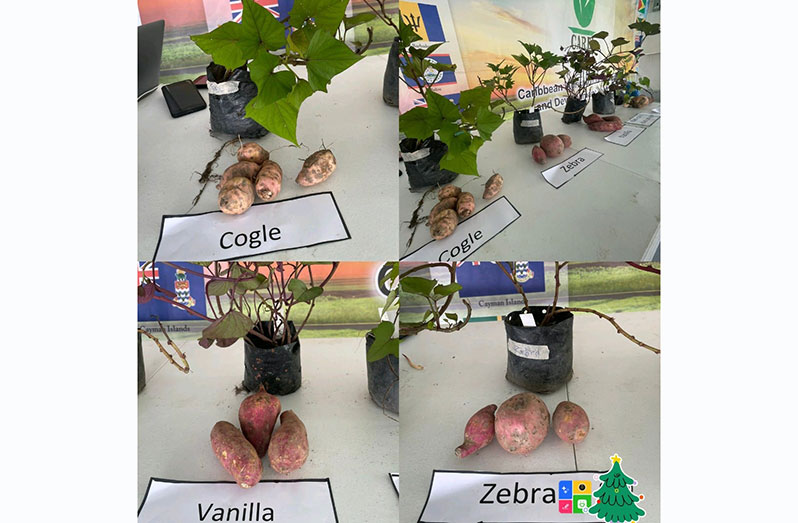– CARDI Representative urges Caribbean countries to cash in
BECAUSE Guyana is once again considered the breadbasket of the Caribbean, a significant amount of attention is being paid to its agriculture sector for both traditional and non-traditional crops.
On Wednesday, the Caribbean Agricultural Research and Development Institute (CARDI) held a Regional Sweet Potato Value Chain Enhancement and Technology Transfer Project workshop at the National Agriculture Research and Extension Institute (NAREI).
The workshop discussed the benefits and addressed the sweet potato farmers’ concerns as they progress in crop production.
Country Representative for the Caribbean Agricultural Research and Development Institute (CARDI), Jhaman Kundun, said the project was funded by the Caribbean Development Bank and supported the three components:- Sweet Potato Value Chain Analysis, Market-preferred Sweet Potato Varieties Research and Technology Transfer and Adoption.
He also mentioned that the project is happening in five countries across the Caribbean, with Guyana being one of the leading project countries.
A-to-Z Consultancy was tasked with executing component one by doing its diagnostics in the fields and interacting with farmers and officials.
The Chief Executive Officer (CEO) of A-to-Z Consultancy, Dr. Noel Watson, said they first came on board with CARDI in January this year and started the sweet potato project.
According to him, his company won the project and decided to target Guyana, Antigua, Barbados, St. Vincent and the Grenadines, which they did in June of 2022.
During that visit, Dr. Watson explained that he was highly impressed and excited about Guyana and the acres of land he had in the savannah that could be used to cultivate sweet potatoes.
The doctor said, “I had the pleasure, through sweet potatoes, to go into the backdam and I was amazed that I could have gotten into a boat and sailed for miles and gotten out to the land, walked through the fields and looked at sweet potatoes for miles. The great farming that is going on in Guyana, you can feed the entire region with the land that you have out there.”
Dr. Watson is very optimistic that Guyana will “definitely” become the breadbasket of the Caribbean very soon and feed the entire region with all the “good” things in the country.
He added that sweet potato products are very versatile, and the project’s objective is for “us” to take advantage of the versatility of sweet potatoes.
He noted, “Guyana has many varieties of potatoes, but I don’t think that we give it as much credit as it deserves… there are many uses of the product, and we are not only looking at the farming aspect of sweet potatoes, but we are looking at giving people the right information so that they can make use of the product in different ways.”
The CEO also added that the project is “very important” and he’s asking the people of the Caribbean to take it seriously since a lot of money can be made through the crop.
Dr. Govind Seepersad, in his presentation of the consultant report, stated that “sweet potato is important for food security, given its fit in the daily consumption basket.
It can be easily improved through agronomic interventions given its cultivation as an annual, its short product cycle (3-4 months), suitability for the agro-ecological climate, high agronomic value, and low perishability.”
He said that NAREI has 32 sweet potato varieties tested for suitability to grow well on marginal soils and under changing climatic conditions. According to him, the crop generally fits into two segments of the value chain: the fresh domestic market, agro-processing, and value addition.
The head of NAREI, Jagnarine Singh, and Major General (retired) Joe Singh spoke on the sweet potato and its popularity due to its quick growth cycle, adaptability to various agro-ecological zones, and advantages in terms of nutrition and health.



